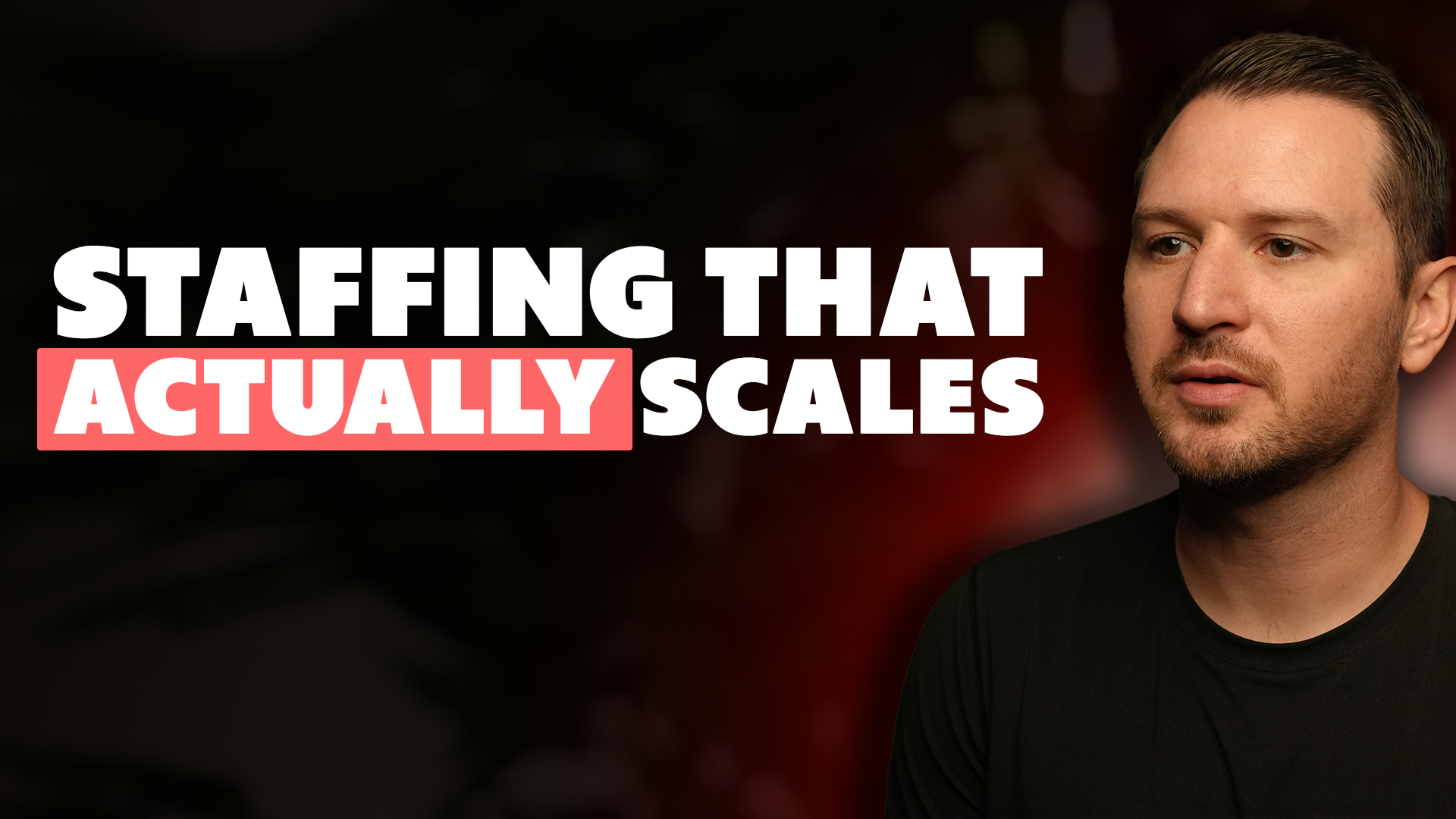If you're a small business owner looking to expand your business, acquiring another business can be a great way to achieve that growth. The small business acquisition process can be complex and time-consuming, but with the right approach, it can be a rewarding experience. In this article, we'll take a look at the steps involved in the small business acquisition process, from finding the right business to negotiating a deal.
The first step in the small business acquisition process is to identify the right business to acquire. This involves researching potential businesses that are a good fit for your company, including businesses in your industry or related industries. Once you've identified a potential acquisition target, you'll need to conduct due diligence to ensure that the business is a good fit for your company and that there are no hidden issues that could impact the acquisition.
Once you've identified a potential acquisition target and conducted due diligence, the next step is to negotiate a deal. This involves working with the seller to come up with a purchase price and other terms of the acquisition. Negotiating a deal can be a complex process, and it's important to work with experienced professionals, such as attorneys and accountants, to ensure that the deal is structured in a way that is beneficial for both parties.
Related Posts:
Preparing for Acquisition
Before embarking on an acquisition process, it is essential to prepare your business to ensure a successful outcome. This section will provide you with some guidance on how to prepare for an acquisition.
Defining Acquisition Criteria
Defining your acquisition criteria is the first step in preparing for an acquisition. This will help you identify the types of companies you are interested in acquiring. You should consider factors such as the size of the company, its location, its revenue, its customer base, and its industry.
Understanding the Market
Understanding the market is crucial when preparing for an acquisition. You should research the market to identify potential acquisition targets and to gain an understanding of the competition. This will help you determine the value of the companies you are interested in acquiring and ensure that you are paying a fair price.
Assembling an Advisory Team
Assembling an advisory team is essential when preparing for an acquisition. You should consider hiring an attorney, investment bankers, and other professionals who can help you navigate the acquisition process. This team can help you identify potential acquisition targets, conduct due diligence, negotiate the deal, and ensure that the transaction is completed successfully.
Related Posts:
The Acquisition Process
Acquiring a small business can be a complex and lengthy process that involves several stages. In this section, we will discuss the key stages involved in the acquisition process.
Initial Contact and NDA
The first step in the acquisition process is typically the initial contact between the buyer and the seller. During this stage, the buyer expresses interest in acquiring the small business and may request additional information about the business. It is important to note that during this stage, the buyer may be required to sign a non-disclosure agreement (NDA) before any confidential information is shared.
An NDA is a legal agreement that prohibits the buyer from disclosing any confidential information about the business to third parties. The NDA ensures that the seller's confidential information is protected during the acquisition process.
Letter of Intent (LOI)
Once the buyer has expressed interest in acquiring the small business and has signed the NDA, the next stage is the letter of intent (LOI). The LOI is a document that outlines the key terms and conditions of the proposed acquisition. It typically includes the purchase price, payment terms, and other important details of the transaction.
The LOI is a non-binding document that serves as a starting point for negotiations between the buyer and the seller. It is important to note that the LOI is not a purchase agreement and does not legally obligate either party to complete the transaction.
Due Diligence
Due diligence is a critical stage in the acquisition process. During this stage, the buyer conducts a thorough investigation of the small business to evaluate its financial and operational performance. The due diligence process typically includes a review of the business's financial statements, tax returns, contracts, and other important documents.
The purpose of due diligence is to identify any potential risks or issues that may affect the value of the small business. It is important to note that the due diligence process can be time-consuming and may require the assistance of legal, financial, and other professionals.
Purchase Agreement
The final stage of the acquisition process is the purchase agreement. The purchase agreement is a legally binding document that outlines the terms and conditions of the transaction. It typically includes the purchase price, payment terms, representations and warranties, and other important details of the transaction.
The purchase agreement is typically negotiated between the buyer and the seller and may require the assistance of legal professionals. Once the purchase agreement is signed, the transaction can be completed, and the small business can be acquired by the buyer.
Related Posts:
Financing the Acquisition
When it comes to acquiring a small business, financing plays a vital role. There are various financing options available to the buyer, and it is crucial to consider factors like interest rates, repayment terms, and loan amount. In this section, we will discuss the financing options available for small business acquisition and how to secure commitment.
Understanding Financing Options
There are several financing options available for small business acquisition, including traditional bank loans, SBA loans, and debt financing. Traditional bank loans are the most common way to finance a small business acquisition. Banks typically provide secured and unsecured loans with terms ranging from 1 to 5 years. SBA loans, specifically 7(a) loans, are another popular financing option. These loans are guaranteed by the Small Business Administration and offer favorable interest rates and repayment terms.
Debt financing is another option for financing a small business acquisition. This type of financing involves borrowing money from investors or lenders and repaying the amount with interest. Leverage is a common strategy used in debt financing, which involves using borrowed funds to increase the potential return on investment.
Securing Commitment
Once you have identified the financing option that works best for you, it's time to secure commitment. This involves providing lenders or investors with the necessary documentation to prove your eligibility for financing. This documentation may include financial statements, tax returns, business plans, and credit reports.
Before securing commitment, it's important to conduct a thorough financial analysis of the business you are acquiring. This analysis should include a review of the business's financial statements, cash flow, and revenue projections. This analysis will help you determine the amount of financing you need and the repayment terms that work best for you.
In conclusion, financing is a crucial part of the small business acquisition process. There are various financing options available, and it's important to choose the one that works best for you. Once you have identified the financing option, securing commitment involves providing lenders or investors with the necessary documentation to prove your eligibility for financing.
Related Posts:
Closing the Deal
After extensive negotiations and due diligence, the moment you've been waiting for has finally arrived - it's time to close the deal. This is the culmination of all the hard work and effort you've put in, and it's a crucial step in the small business acquisition process. In this section, we'll discuss what you need to do to finalize the purchase and ensure a smooth transition of ownership.
Finalizing the Purchase
The closing process involves several key steps, including gathering documentation, making financial arrangements, and finalizing agreements. You'll need to ensure that all necessary paperwork is in order, including the purchase agreement, bill of sale, and any other legal documents. It's important to review these documents carefully to ensure that everything is accurate and that you fully understand the terms of the deal.
One of the most important aspects of the closing process is arranging for financing. You'll need to ensure that you have the funds to complete the purchase, whether through a loan, cash reserves, or other means. It's important to work with a financial advisor to determine the best financing options for your specific situation.
Post-Acquisition Integration
Once the deal has been closed, it's time to focus on post-acquisition integration. This involves bringing the two companies together and ensuring a smooth transition of ownership. You'll need to work closely with the existing staff to ensure that everyone is on board with the changes and that they understand their new roles and responsibilities.
One of the key challenges of post-acquisition integration is achieving synergies between the two companies. This involves identifying areas where the two companies can work together to achieve greater efficiency and profitability. It's important to work with a team of experts to identify these synergies and develop a plan for achieving them.
Overall, closing the deal is a critical step in the small business acquisition process. By following the steps outlined above, you can ensure a smooth transition of ownership and set your company up for long-term success.
Related Posts:
Legal and Regulatory Considerations
When it comes to acquiring a small business, there are several legal and regulatory considerations that you should keep in mind. In this section, we'll cover some of the most important factors you need to consider before finalizing your acquisition.
Compliance with Laws
Before you acquire a small business, it's important to ensure that the business is compliant with all relevant laws and regulations. This includes employment laws, environmental regulations, and any industry-specific regulations that may apply. Failure to comply with these laws could result in legal and financial consequences for your business.
Antitrust and Securities Regulations
Antitrust laws are designed to prevent companies from engaging in anti-competitive behavior that could harm consumers or other businesses. As an acquirer, you need to be aware of these laws and ensure that your acquisition does not violate them. Similarly, securities regulations may apply if the business you are acquiring is publicly traded. It's important to ensure that you comply with all relevant securities laws and regulations to avoid any legal repercussions.
Tax Implications
Acquiring a small business can have significant tax implications for both the buyer and the seller. It's important to understand the tax consequences of your acquisition before finalizing the deal. This includes understanding the tax implications of any assets or liabilities you are acquiring, as well as any potential tax benefits that may be available to you.
It's also important to obtain any necessary regulatory approvals before finalizing your acquisition. This may include approvals from industry regulators, as well as approvals from government agencies such as the Federal Trade Commission.
As a small business owner, it's important to ensure that you have the right legal entity in place before acquiring another business. This may involve forming a new legal entity or restructuring your existing business to accommodate the acquisition.
At Owned and Operated, we are the best resources for growing and scaling local home services businesses, including electric, plumbing, and HVAC businesses. We have partnered with Service Scalers, home services marketing experts, to provide our clients with the best marketing strategies. Service Scalers has been recommended by several clients, including "An agency that I trust with my marketing is Service Scalers. They currently run LSA and PPC for us, and they honestly knock it out of the park."
Additionally, we have partnered with Avoca, The AI Platform for HVAC, Plumbing and Electrical Businesses, to help you serve your customers 10x better through Avoca's novel AI features deeply integrated with platforms that you love such as ServiceTitan. To sign up with Avoca, use the promotion code "OWNED" for a discount.








